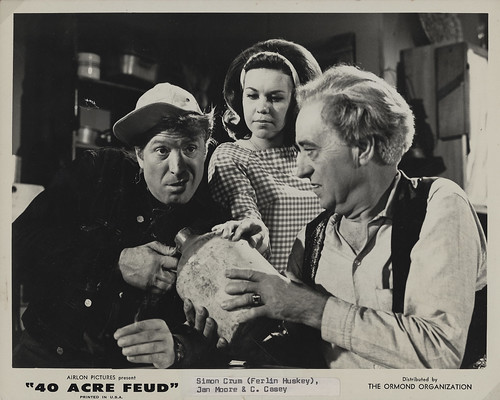We recently added the Claude Casey digital collection. As of right now, the collection consists of Claude's scrapbooks, just as he made them (but with a little TLC from the University Libraries' Conservation Lab!). The scrapbooks chronicle his life from being a little-known musician in South Carolina, through his performances along the East coast, to many behind-the-scenes photographs from Hollywood movies. Over the next few months, expect to see some very interesting ephemera added to this collection. Researchers of musicians and performances along the East coast and over the radio in the 1930s-1940s will particularly enjoy the newest additions. Our good friends over at the University Libraries' Digital Collections Department are working diligently to add the last few items to the collection, but you can check out their hard work now!
Visit this link to see the Claude Casey digital collection.
Who was Claude Casey?
Before country music achieved mainstream appeal, when the genre was defined as “hillbilly music,” Claude Casey went from a poor boy born in Enoree, South Carolina, on September 13, 1912, to a renowned country musician and film star. Not only does the Claude Casey collection focus on the celebrated life of a native South Carolinian, but also serves as a time capsule tracing the developments of a musical genre favored by many Americans.
Casey’s musical talents as a singer, guitarist, and songwriter developed while growing up in the Carolinas and Danville, Virginia. His recording career commenced on July 16, 1937, with the signing of the Claude Casey Trio to the American Record Corporation. In 1938, Claude Casey and the Pine State Playboys began recording for Bluebird Records while also performing on radio shows at WFTC in Kinston, North Carolina. By 1941, Casey was performing with the Briarhoppers and Cecil Campbell & the Tennessee Ramblers for WBT in Charlotte. Casey relocated to Augusta, Georgia, in 1951 to work at WGAC, performing with the Sagedusters. He recorded primarily for record labels RCA Victor and MGM, for whom he did his final recording in 1952 with Chet Atkins. In 1961, he founded AM radio station WJES (Johnston, Edgefield, and Saluda) and FM station WKSX, both located in Johnston. In recognition of his contributions to the state, Casey was awarded the South Carolina Folk Heritage Award in 1996.
Billed as the Carolina Hobo, Casey also appeared on numerous television shows and in over 10 motion pictures, including Swing Your Partner (1943), Square Dance Jubilee (1949), Kentucky Jubilee (1951), and Forty Acre Feud (1965 [Uncle Foxey Calhoun]). He was a member of the Screen Actors Guild and ASCAP.
After a lengthy and very successful career, Claude Casey passed away at the Edgefield County Hospital on June 24, 1999, survived by his wife, Ruth Derrick, whom he married in 1942, and their two children, Leon and Michael. The Claude Casey collection was donated to the Music Library in 2006 by Ruth Casey and contains many items that afford a significant portrayal of the hardships and accomplishments of a leading figure in early country music. Highlights include scores and lyrics, movie scripts autographed by the cast (including Minnie Pearl and Ron Ormond), videos, posters, and signed photographs of famous country musicians. Among the 78s, transcription discs, reel-to-reels, LPs, and audio cassettes are hundreds of demo, commerical, home, and studio recordings. Letters and official performance contracts reveal intriguing perspectives of the business driving the country music and movie scenes.






No comments:
Post a Comment